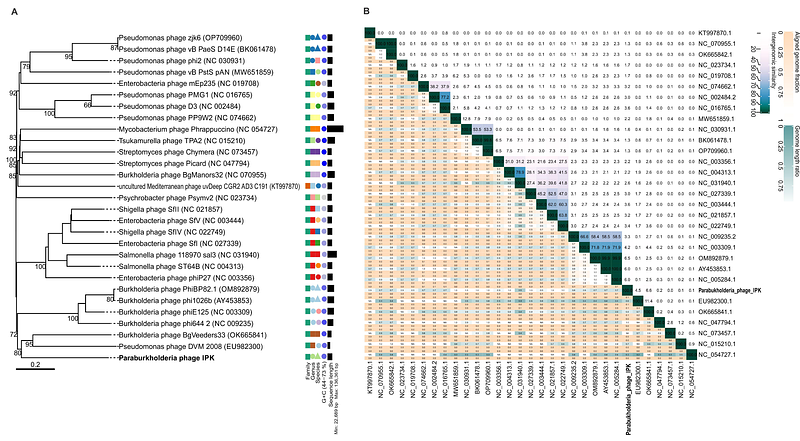Effects of a novel Paraburkholderia phage IPK on the phenanthrene degradation efficiency of the PAH-degrading strain Paraburkholderia caledonica Bk.

Effects of a novel Paraburkholderia phage IPK on the phenanthrene degradation efficiency of the PAH-degrading strain Paraburkholderia caledonica Bk.
Nieto, E. E.; Ghanem, N.; Cammarata, R. V.; Borim-Correa, F.; Coppotelli, B. M.; Chatzinotas, A.
AbstractPhages are a major cause of bacterial mortality, affecting bacterial diversity and ecosystem functioning. However, the impact of phage-host interactions in contaminated environments and their role in pollutant biodegradation have been largely overlooked. We isolated and characterized a novel phage from a polycyclic aromatic hydrocarbon (PAH)-contaminated soil that infects the PAH-degrading bacterium Paraburkholderia caledonica Bk, and investigated the effect of different multiplicity of infection (MOI) on the degradation efficiency of phenanthrene. The phage IPK is a temperate phage with a wide pH and temperature tolerance and a burst size of 80 PFC/ml. The IPK phage was classified as a member of the Caudoviricetes, related to Pseudomonas and Burkholderia phages; however, its low intergenomic similarity indicates that it belongs to a new species. Three AMGs related to amino acid metabolism and to bacterial growth regulation were identified in the phage genome. The highest multiplicity of infection (MOI 10) showed a rapid recovery of the host density abundance and greater phenanthrene degradation than MOIs ranging from 0.01 to 1. This work highlights the critical role of phage-host interactions in modulating pollutant degradation efficiency, which could be a key for improving the establishment of inoculants in bioremediation processes